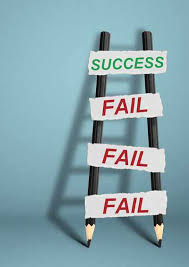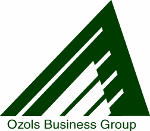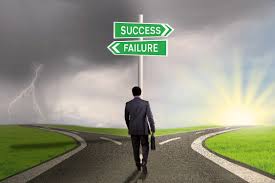By Vilis Ozols, MBA, CSP
This article has been published in numerous newsletters, trade journals and company publications.
Published in Sales and Marketing Executives Of Colorado newsletter, Resource, March 1994. Published in Progressive Rentals Magazine (APRO), 2004. (click here for information about reprinting these articles)

A study by Xavier University shows that every single day more than 1,000 new businesses are started in the U.S., and of those, 930 will eventually fail. A Dun and Bradstreet report states that only one out of every three men or women who start a business will still be in business four years later. That same report goes on to say that a good number of the business owners will never know why their businesses failed.
One of the biggest obstacles any business must deal with, is the “Paradox of Success.” The “Paradox of Success,” ironically enough, is the reason that most new businesses are started. At the same time it is responsible for anywhere from 20%, to as high as 80% by some accounts, of the business failures we see in America today.
The “Paradox of Success” is very simply, the point at which your distinctive competence becomes your greatest liability. The foundation of failure in many companies lies with a very developed area of expertise. Too often the continuum of skills needed to succeed in a business endeavor has a high concentration at one point and an undeveloped range of needed skills outside that area of distinctive competence.

Thus the label, the “Paradox of Success,” emerges. In order to start a business and to ultimately succeed, you had better be differentiated from the competition. You must be better at some aspect of doing business than the next gal or guy. Unfortunately, the benchmark of success (for both new and existing businesses alike) is not how well you exceed your rival in your selected area of expertise. It really comes down to how well you have developed your ability to excel in the other facets of your business, outside of your comfort zone.
Examples of the “Paradox of Success” abound. We’ve all encountered salespeople who are great at “getting” the sale, and horrible at following up with service. Or, companies that are wonderful marketers, identifying a benefit and drawing in customers by the boatload, who then can’t deliver the quality product needed. Someone with a flair for color, design and creativity may start their own interior design business, but goes out of business because they don’t have the selling skills necessary. Or, in today’s deep discount environment, someone who can sell and market against the competition, but who’s margins are too thin to survive over the long run.

The first step in overcoming “The paradox” lies in identifying it. Give yourself, your department, or your company, a “Strengths and Weakness” analysis. Rank yourself in terms of sales skills, marketing ability, customer service, business management, finance, production, creativity, speed, efficiency, and any other category that makes sense. Then take that list and have a trusted customer, confidante or mentor rate your skills as well. Identify discrepancies in your assessment. Set up an improvement plan, write it out, assign deadlines and, most importantly, determine ways to measure if you’ve attained the goals.
Is it possible that the most visible strength of your business is also its greatest limiting factor? As with any medical procedure, diagnosis predicates the treatment. Know what you’re good at and get better at the rest! That’s how to combat the “Paradox of Success.”

